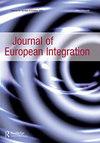Conspicuous by their absence? The member states in European Union counter-terrorism
IF 3.1
1区 社会学
Q1 INTERNATIONAL RELATIONS
引用次数: 0
Abstract
This article investigates member state influence on the making of EU counter-terrorism policy. Crucially, member states have not been viewed as major drivers of change in EU counter-terrorism, despite their experience of attacks, policy expertise, and the domestic salience of the issue. To address this gap, I show how member states acted as policy entrepreneurs during EU Passenger Name Records (EU-PNR), on which final agreement was reached in 2016. Specifically, I demonstrate that the UK Home Office was a prominent, long-term actor in the development of the EU’s counter-terrorism policy and worked with the Commission to build an alliance in favour of EU-PNR. However, it was only with the ‘window of opportunity’ presented by jihadi terrorist attacks between 2015 and 2016 that members of the French government were finally able to pressure critical elements of the European Parliament into agreement.因为他们的缺席而引人注目?欧盟成员国的反恐
本文考察了成员国对欧盟反恐政策制定的影响。至关重要的是,成员国并未被视为欧盟反恐变革的主要推动者,尽管它们经历过袭击,具有政策专长,并且在国内也很突出。为了解决这一差距,我展示了成员国在欧盟旅客姓名记录(EU- pnr)期间如何作为政策企业家,并于2016年达成最终协议。具体来说,我证明了英国内政部在欧盟反恐政策的发展中是一个突出的、长期的行动者,并与欧盟委员会合作建立了一个有利于欧盟- pnr的联盟。然而,只有在2015年至2016年圣战恐怖袭击出现的“机会之窗”下,法国政府成员才最终能够向欧洲议会的关键成员施压,使其达成协议。
本文章由计算机程序翻译,如有差异,请以英文原文为准。
求助全文
约1分钟内获得全文
求助全文

 求助内容:
求助内容: 应助结果提醒方式:
应助结果提醒方式:


